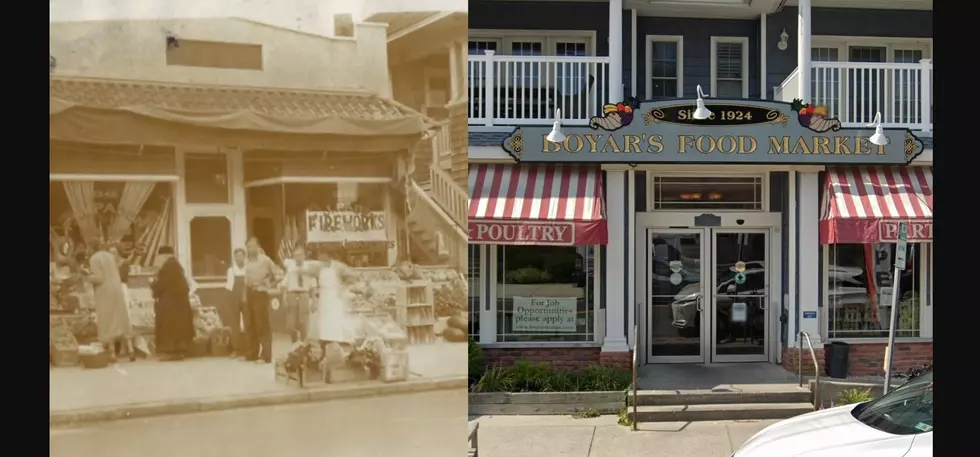
Five Reasons State Gave for Rejecting Atlantic City Rescue Plan
What's next for Atlantic City? Despite optimism about the city's proposed rescue plan by Atlantic City Mayor Don Guardian and Counsel President Marty Small, the state rejected the proposal Tuesday as insufficient to achieve financial stability for Atlantic City.
In his statement, state Department of Community Affairs Commissioner Charles Richman pointed out that the five-year plan had a “significant financial gap each year” and a cumulative shortfall of about $106 million.
"I have examined in detail every aspect of the Plan looking for specific actions taken by the City since it was designated a municipality in need of stabilization and recovery for
strategies, actions, and policies that could be deemed to satisfactorily address those nine mandatory components.
From Tuesday statement, here are the five reasons Richman gave for rejecting the plan...
First: The City’s submission does not meet basic requirements of the Act. It does not include a proposed balanced budget for 2017 that complies with all of the applicable conditions of the Local Budget Law, nor is it adequately responsive to all of the Act’s eight specific directives insofar as some important details are missing and some are factually wrong.
Second: There is a significant financial gap each year and a cumulative financial shortfall across the recovery period in excess of approximately $106 million.Even more modest estimates of the fiscal gap would yield a structural deficit that could never be closed by the actions outlined in the City’s Plan.Some glaring errors or omissions that contribute to the shortfall include...
- understating debt service over the next five years by approximately $18 million;
– failing to accurately estimate the revenues collected from the investment alternative tax by improperly anticipating an excess of IATs of approximately $31 million over the life of the Plan;and
-overstating property tax revenues by approximately $20.5 million, based on the City’s flawed assumption that the property tax base will remain constant for the Plan period.
Third: the Plan presents a number of other operational and qualitative concerns described within this Decision. By way of example, the City has made some effort to reduce its workforce, primarily through attrition and outsourcing of services. Although the Plan outlines an additional headcount reduction of 100 over the life of the Plan, it is not enough to sustainably address one of the biggest cost drivers in the City’s budget. Indeed, more generally, the City neglects to quantify operational savings achieved
through full implementation of cost cutting strategies.
Four: Fundamentally, the City elected to rely on various financing mechanisms the basis for which are not supported by information and whose viability has been challenged by both Department and consulting experts.
For example, assuming these transactions would even be legally permissible, the sale of Bader Field to the MUA for $110 million and a new $105 million financing secured by State Municipal Qualified Bond Act credit enhancement should have been predicated on pro forma analyses of interest rates and other important terms, yet the Plan lacks that basic level of detail about the proposed transactions and omits the interest rates used to calculate the cost of issuance and debt. Independent financial experts advise that in the current financial marketplace, given Atlantic City’s credit rating, the cost would be significantly higher than the City’s projections.
.
The Emergency Manager urged the City to dissolve the MUA as a practical way to raise the most cash. Instead, the City rejected the Emergency Manager’s recommendation and
proposed a structurally flawed alternative, which even if consummated, could financially burden the City and the MUA, a significant asset of the City. Thus, the City’s proposed sale of Bader Field is not likely to aid the City in achieving financial stability and
is not prudent fiscal management. Despite the extraordinary need to raise revenue, the City chose not to increase taxes at any point during the five-year recovery term and provided no analysis to support its decision.
Five: the City has not provided evidence of negotiated PILOT agreements with casino
properties as required by the PILOT Act, thereby jeopardizing revenue collections during the calendar year.
The Mayor Guardian and Counsel President are planning a 1p.m. Wednesday press conference to discuss the state’s rejection of the plan. In a statement Tuesday, they said,
“The Department of Community Affairs had the opportunity to ask us any questions they had over the past five days but did not do so. Instead, they used their own interpretation based on their own opinions to come to inaccurate conclusions.”
More From Lite 96.9 WFPG









